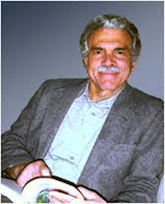John Arden, Ph.D. has 35 years of experience providing psychological services and directing mental health programs. Since 1999 he has served as the Director of Training for the Kaiser Permanente Medical Centers, Northern California region. He has developed one of the largest mental health training programs in the United States. In this capacity he oversees more than 100 interns and postdoctoral psychology residents in 22 medical centers. Prior to this he served as the Chief Psychologist at Kaiser Permanente Medical Center in Vallejo, California.
Dr. Arden’s study of neuropsychology has inspired him to integrate neuroscience and psychotherapy, synthesizing the biological and psychological into a new vision for psychotherapy: Brain-Based Therapy. His work incorporates what is currently known about the brain and its capacities, including neuroplasticity and neurogenesis, with psychotherapy research, mindfulness, nutritional neuroscience and social intelligence. He conducts seminars on Brain-Based Therapy throughout the United States and abroad.
Author of thirteen books, his most recent publication, The Brain Bible, describes how the general audience can utilize breakthroughs and benefits from neuroscience research for a vital, productive, and happy lifetime. He is the lead author (with Dr. Lloyd Linford) of two volumes for the practitioner entitled Brain-Based Therapy: Adults and Brain-Based Therapy: Children & Adolescents. His first book, Consciousness, Dreams, and Self, was awarded the 1997 Outstanding Academic Book Award by Choice, a publication of the American Library Association. An international panel of jurists nominated his second book: Science, Theology, and Consciousness, for the CTS award funded by the Templeton Foundation. Arden explored the degradation of the fabric of American society with America’s Meltdown: Creating the Lowest Common Denominator Society. His seven self-help books are: Surviving Job Stress, Improving Your Memory for Dummies, Conquering Post Traumatic Stress Disorder (with Dr. Victoria Beckner), Heal Your Anxiety Workbook, and Heal Your OCD Workbook (with Dr. Daniel DalCorso), and Rewire Your Brain. www.drjohn.arden.com
Check out the following Psychology CE Courses based on listening to Shrink Rap Radio interviews:
Jungian Psychotherapy Part 1 (6 CEUs)
Jungian Psychotherapy Part 2 (7 CEUs)
Jungian Psychotherapy Part 3 (7 CEUs)
Jungian Psychotherapy Part 4 (6 CEUs)
Jungian Psychotherapy Part 5 (7 CEUs)
Jungian Psychotherapy Package of the Five Above (33 CEUs)
Wisdom of The Dream (4 CEUs)
Positive Psychology (6 CEUs)
Pros and Cons of Positive Psychology (5 CEUs)
CERTIFICATE PROGRAM IN POSITIVE PSYCHOLOGY (32 CEUs)
Body-Mind: Goodbye to Dualism (6 CEUs)
Brain: Insights from Neuroscience (8 CEUs)
Meditation & Psychotherapy (8 CEUs)
NEW! Crisis & Trauma: Identification, Assessment, & Treatment (15 CEUs)
Neuroscience and Healing (8 CEUs)
NEW! The Psychology of Relationships (7 CEUs)
Get our iPhone/Android app!
Get 10% discount on all lectures at The JungPlatform using our discount code: DRDAVE
You can also earn CEU’s by going to another partner website at Ed4Online!
A psychology podcast by David Van Nuys, Ph.D.
copyright 2014: David Van Nuys, Ph.D.
Podcast: Play in new window | Download
Subscribe: Apple Podcasts | RSS

I know he’s a pal of yours Dave… and I have a feeling the interview didn’t really capture the essence of the man… But I found myself having an unpleasant reaction to the tone of the presentation.
The whole approach here sounds dangerously “prescriptive”… as demonstrated most clearly by the exercise prescriptions… on little prescription pads.
You see psychotherapy (as I’m sure you know) cannot ultimately rely on deference to authority. Even if the approach uses fancy neuroanatomy to guide the prescriptions. As you insinuated in your questions there are many complex forces within the patient that resist simple directives from authority even if they have face validity.
Most people know that exercise, diet and sleep are important… but simply telling the patient that and couching it in neuroscience is ultimately doomed to failure much of the time… reinforcing the feelings of failure that often underlie the difficulties in the first place.
If there was more to the techniques.. and I would hope that there is… it wasn’t covered in the interview… So I left feeling that the entire enterprise was the equivalent of a lecture from a well meaning, know-it-all dad to his teenage underachieving son… Socialize, eat better, exercise, do your homework, sleep! Many of us know how well that works. 🙁
I think the difficulty is that there’s only so much that any one interview can go into – which is, I guess, why Dr. Dave says on a couple of occasions, “I think we should have a whole other episode about this” – it’s a difficult balance to get.
Some episodes do a deep dive into a certain area, some are a lot more generalized – this seems to be one of the latter type.
The truth of it, though, is that most of the stuff that can keep us healthy is obvious – the neuroscience that is coming out now just helps us to understand the underlying mechanisms of why that is, and helps dispel some of the less useful myths.
I guess we all perceive these things through different personal filters – I can see what you mean on the ‘fatherly advice’ thing, but I personally don’t find that offensive. I agree with you on the ‘prescription pad’ thing though – does seem a bit authoritarian. On the other hand, if it’s done in agreement, then it’s no different than typical goal-setting you might get in coaching. As I say, depends how you look at it.
I didn’t know about the alcohol thing, so that’s handy to know. As drinking during the workday is no longer acceptable, it does raise a question on when to drink – binge at the weekend? Hmmm. I suspect a glass of red with your meal is fine, so long as it’s early evening. At the end of the day, it’s about taking these nuggets, and deciding how to useful integrate them, if at all.